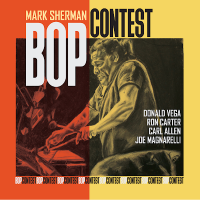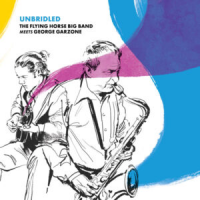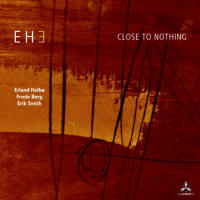Home » Jazz Articles » Extended Analysis » Tony Williams: Tony Williams: Mosaic Select 24
Tony Williams: Tony Williams: Mosaic Select 24
 Tony Williams
Tony WilliamsMosaic Select 24
Mosaic Records
2006
When Tony Williams passed away unexpectedly in 1997, at the age of 51, it was the end to a career that had done much to redefine the drummer's role in jazz. From his earliest days—first with saxophonist Jackie McLean, and shortly afterwards, while still in his teens, as a member of trumpet icon Miles Davis' second great quintet—Williams lifted the kit out of its conventional position as an accompanying rhythm section instrument, placing it on equal footing with his band mates.
That the rest of Davis' band—pianist Herbie Hancock, saxophonist Wayne Shorter and bassist Ron Carter—recognized Williams' drive and innovation is evident on tracks like Shorter's "Nefertiti, from Davis' eponymous album (Columbia, 1967). Here the conventional line-up roles are reversed, with the front line providing ongoing support for Williams' powerful soloing.
Williams' post-Davis career was a mix of ongoing envelope-pushing and centrist mainstream efforts. The same year that he released the fusion/funk-centric Million Dollar Legs (Columbia, 1976) he was playing dates with Carter and pianist Hank Jones as a member of The Great Jazz Trio. While Williams was seen more often as a sideman than a leader in the years between 1973 and 1984, he was busy honing his compositional skills. When Blue Note Records resurfaced in the mid-1980s after a number of years of inactivity, both label head Bruce Lundvall and producer Michael Cuscuna were eager to hear where Williams was at, and signed him back to the label where he'd gotten his start.
The five studio albums that Williams recorded for Blue Note between 1985 and 1991, while firmly entrenched in the mainstream, were possessed of a stronger compositional voice than Williams had demonstrated previously. The first album, 1985's Foreign Intrigue, was something of a studio concoction, but by the end of the session Williams had found a band that, with the exception of the bass chair, would remain constant throughout the rest of the six year period, making it Williams' longest-lasting group. With these records out of print for a number of years, it's great news that Mosaic has brought together all five sessions as a three-CD Mosaic Select release.
While Williams takes relatively few solos throughout the more than three-and-a-half hours of music, his muscular presence is a force of nature that's impossible to ignore. At a time when so many drummers were forced to muffle their tom toms and use lighter cymbals, Williams' dark-hued cymbals and resonant sound on the kit was a breath of fresh air.
Unfortunately, the one area where Williams did concede to the times was his use of electronic drums on Foreign Intrigue, as well as drum programming on both that release and the follow-up, 1986's Civilization. In the 1985 interview with singer Ben Sidran which makes up the bulk of the accompanying booklet, Williams discusses the goal of incorporating modern technology with the jazz mainstream. A lofty ideal perhaps, but in practice the electronics feel out-of-place, tarnishing what is otherwise a stunning collection.
Still, Williams' experiments with electronics and programming don't detract from the material's overall impact. While Foreign Intrigue featured vibraphonist Bobby Hutcherson and longtime collaborator Carter, it was the relatively young pianist Mulgrew Miller and trumpeter Wallace Roney who were its biggest revelations.
Miller had already been around for a few years, playing with everyone from trumpeters Woody Shaw and Freddie Hubbard to another iconic drummer, Art Blakey. Rather than the more common references to Bill Evans, Miller's style was, and still is, rooted in the modality of McCoy Tyner. But it was with Williams that he emerged as a distinctive voice that transcended his lineage.
Terence Blanchard was the trumpeter originally planned for the session—largely due to his working relationship with alto saxophonist Donald Harrison, who rounded out Foreign Intrigue's sextet. But when Blanchard couldn't make the date, Roney, whose career was really only beginning, got an opportunity that would quickly establish him as a vital new presence. Harrison would be replaced, after Foreign Intrigue, by the equally notable tenor and soprano saxophonist Bill Pierce, and so it was with Civilization that the identity of Williams' group really began to take shape.
Hearing all of these recordings for the first time in nearly two decades it's remarkable just how many memorable tunes Williams wrote during this six year period. His writing was undeniably aimed at providing ample solo space for individual players, but often eschewed the conventional AABA format. And while the electronic drums, especially during Williams' solo intro to the title track of Foreign Intrigue, are more than a little cringe-worthy, the sheer melodicism of songs like "Sister Cheryl more than make up for it. "Sister Cheryl and the Latin-tinged "Life Of The Party would go on to become regular parts of Williams' gigging set lists, and it's no surprise.
But it was the release of Civilization that found both Williams' quintet—this time with Charnett Moffett on bass—and his writing hitting full stride. Six of the seven tunes would enter Williams' gigging repertoire, and were still there even as late as 1992, when the double CD, Tokyo Live (Blue Note, 1993), was recorded. There's not a weak tune in the bunch, ranging from the groove-based ostinato of "Geo Rose to the potent swing of "Warrior and "Mutants On The Beach, the relaxed amble of "Ancient Eyes and the John Coltrane-esque modality of "Soweto Nights.
While the 1980s was the time of the so-called "Young Lions, Williams approached the mainstream with a level of energy and commitment that distinguished his band from the pack around him. The quintet's approach was less overtly exploratory than Davis' similarly configured mid-1960s quintet, but a certain liberalism existed that transcended merely playing through the changes and demonstrating prodigious chops.
While there were other drummers who approached Williams in terms of creativity—Jack DeJohnette and Paul Motian come immediately to mind—there was nobody who played the kit with such a paradoxical blend of power and looseness. Unlike some drummers, whose accents often felt like non-sequiturs injected simply for the sake of it, every time Williams hit the kit you know he meant it. And yet he remained relaxed and unhurried throughout, whether it was on the medium tempo of "Native Heart or the relentless fire of "Two Worlds, both from 1989's Native Hearts.

The balance of the material contained in this box, from 1988's Angel Street and 1991's The Story Of Neptune, found the group mining similar turf, but continuing to grow as a collective voice. Mainstream it may have been, but there are few drummers in straight-ahead jazz that would place a rockish backbeat behind a tune like "Dreamland, which could easily have been approached with a more conventional sense of swing. And though the music was primarily centrist in nature, there's a harmonic sophistication and openness that, at times, approaches but never quite reaches greater freedom. As responsive as Williams always was to his surroundings, there was an inevitable groove that never got lost in the shuffle. In Roney and Pierce, Williams had one of the hottest front lines in contemporary jazz, and in Miller an equally strong soloist and accompanist.
Roney and Miller have since moved on to greater success as leaders in their own right. Bassists Moffett, Robert Hurst and Ira Coleman lead busy lives as sidemen for everyone from Dee Dee Bridgewater and Pharoah Sanders to Branford Marsalis, Diana Krall and Kenny Garrett. Only Pierce seems to have fallen by the wayside and that's a shame, as one would have hoped he could have moved on to greater heights too.
Like Davis before him, Williams' role as leader and mentor to a group of largely younger musicians made this quintet an experience in shared evolution. There's no experience like continuous recording and performing to help an artist develop his/her voice and the five studio recordings that Williams released between 1985 and 1991 were successes on so many levels.
As always, Mosaic's remastering work is top-notch. The only shame is that the final release by this group, Tokyo Live, and the 1990 VHS video New York Live, both remain out of print. It is to be hoped that the attention Williams' Mosaic Select box is receiving will encourage the reissue of those remaining two titles, completing the picture of one of the most creative and compelling periods in Williams' distinguished 35-year career.
Tracks and Personnel
Disc One
Tracks: Foreign Intrigue; My Michele; Life Of The Party; Takin' My Time; Clearways; Sister Cheryl; Arboretum; Geo Rose; Warrior; Ancient Eyes; Soweto Nights; The Slump; Civilization.
Personnel: Wallace Roney: trumpet; Donald Harrison: alto saxophone (1-7); Bobby Hutcherson: vibraphone (1-7); Mulgrew Miller: piano; Ron Carter: bass (1-7); Tony Williams: drums, electronic drums (1-7), drum machine; Bill Pierce; tenor and soprano saxophone (8-13); Charnett Moffett: bass (8-13).
Disc Two
Tracks: Mutants On The Beach; Citadel; Angel Street; Touch Me; Red Mask; Kiss Me; Dreamland; Only With You; Pee Wee; Thrill Me; Obsession; Native Heart; Extreme Measures.
Personnel: Wallace Roney: trumpet; Bill Pierce: tenor and soprano saxophone; Mulgrew Miller: piano; Tony Williams: drums, drum machine (1-2); Charnett Moffett: bass (1-11); Ira Coleman: bass (12); Robert Hurst: bass (13).
Disc Three
Tracks: City Of Lights; Two Worlds; Juicy Fruit; Crystal Palace; Liberty; The Story Of Neptune: Overture; The Story Of Neptune: Fear Not; The Story Of Neptune: Creatures Of Conscience; Blackbird; Crime Scene; Poinciana; Birdlike.
Personnel: Wallace Roney: trumpet; Bill Pierce: tenor and soprano saxophone; Mulgrew Miller: piano; Tony Williams: drums; Ira Coleman: bass (1,4,6-12); Robert Hurst: bass (2,3,5).
Photo Credit
Laurence Svirchev
Personnel
Tony Williams
drumsAlbum information
Title: Tony Williams: Mosaic Select 24 | Year Released: 2006 | Record Label: Mosaic Records
Tags
PREVIOUS / NEXT
Support All About Jazz
 All About Jazz has been a pillar of jazz since 1995, championing it as an art form and, more importantly, supporting the musicians who make it. Our enduring commitment has made "AAJ" one of the most culturally important websites of its kind, read by hundreds of thousands of fans, musicians and industry figures every month.
All About Jazz has been a pillar of jazz since 1995, championing it as an art form and, more importantly, supporting the musicians who make it. Our enduring commitment has made "AAJ" one of the most culturally important websites of its kind, read by hundreds of thousands of fans, musicians and industry figures every month.





















